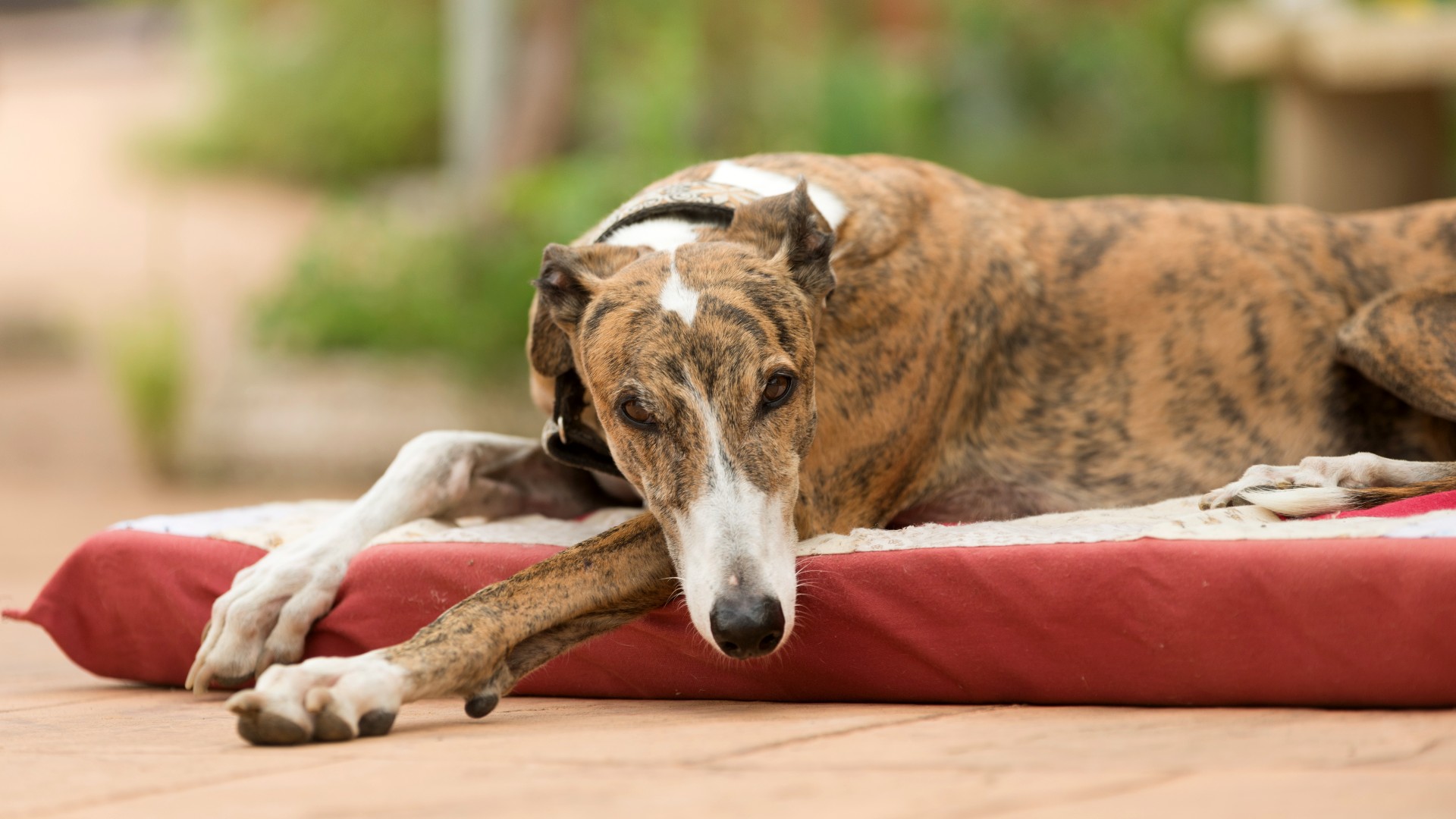Italian Greyhound tests positive for monkeypox in first possible case of human-to-dog transmission
World Health Organization calls event new but "not surprising" after Italian Greyhound tests positive for monkeypox in Paris

Get the best advice, tips and top tech for your beloved Pets
You are now subscribed
Your newsletter sign-up was successful
An Italian Greyhound tested positive for monkeypox last month, twelve days after its owners were diagnosed at a hospital in Paris, an event that the World Health Organization is calling new but “not surprising.”
According to a report published in The Lancet, the two men said that they had let their four-year-old pup sleep in their bed with them, but that they had been careful to keep both the Greyhound and themselves away from other people and animals once they began to display symptoms.
After being in close contact with its owners, the dog went on to develop lesions just under two weeks later and later tested positive with the same type of monkeypox as one of the men.
"To the best of our knowledge, the kinetics of symptom onset in both patients and, subsequently, in their dog, suggest human-to-dog transmission of monkeypox virus," the authors of the report wrote.
"Given the dog's skin and mucosal lesions as well as the positive monkeypox virus PCR results from anal and oral swabs, we hypothesise a real canine disease, not a simple carriage of the virus by close contact with humans or airborne transmission (or both)."
Dr. Rosamund Lewis, the World Health Organization's technical lead on the monkeypox response, said that the virus had previously only been transmitted from animals to humans, not the other way around.
- Special needs family adopts abandoned Pit Bull who refuses to leave kids' side
- Rottweiler dad meets puppies for the first time in adorable video
- Lost dog with California tag turns up 5,600 miles away in German village
"This is the first incident that we're learning about where there is human-to-animal transmission," Lewis said during a Washington Post Live event on Monday. "This has not been reported before, and it has not been reported that dogs have been infected before.”
Get the best advice, tips and top tech for your beloved Pets
While Lewis says this is a new event, she says it’s not surprising and is something the WHO have been on the lookout for for some time and because of that, they have erred on the side of caution with their messaging to the public.
"The messaging that has been given up until now is that pets should be isolated from the family members who may be infected," she said.
"This has been an example of precautionary approach, precautionary messaging, because we didn't have the information that this had ever happened before, it had not been reported before, but it was a reasonable, cautious message to give. And now we have the first incident where this has actually occurred."
Although the situation is being closely monitored by health professionals around the world, many, such as Colin Parrish, a professor of veterinary virology at Cornell University, are calling for caution and calm.
"This is the first case that's occurred that we're aware of, at least in the Western world during this latest outbreak, so it clearly isn't something that happens very easily,” he explains.
Parrish believes human-to-dog transmission is unlikely to cause any serious risk or issues, stating that “at the moment, there’s no evidence that dogs are going to become a standing infected host for monkeypox.”
Still, the US Centers for Disease Control and Prevention has updated its website to acknowledge that dogs can now be infected with the virus and that the spread is possible through close contact that includes “petting, cuddling, hugging, kissing, licking, sharing sleeping areas and sharing food.”
They’ve advised any human infected with monkeypox to avoid contact with animals and wherever possible to let someone else care for their pet while they recover. Should their pet have already come into close contact with them, it’s advised that they are kept away from other people and animals for 21 days or until a full recovery can be determined by a healthcare professional.

Kathryn is a freelance writer who has been a member of the PetsRadar family since it launched in 2020. Highly experienced in her field, she's driven by a desire to provide pet parents with accurate, timely, and informative content that enables them to provide their fur friends with everything they need to thrive.
Kathryn works closely with vets and trainers to ensure all articles offer the most up-to-date information across a range of pet-related fields, from insights into health and behavior issues to tips on products and training.
When she’s not busy crafting the perfect sentence for her features, buying guides and news pieces, she can be found hanging out with her family (which includes one super sassy cat and a kitten), drinking copious amounts of Jasmine tea and reading all the books.
She has written for a range of publications, including Fit&Well, Top Ten Reviews, LiveScience, Goodto, and Product Hunt.
